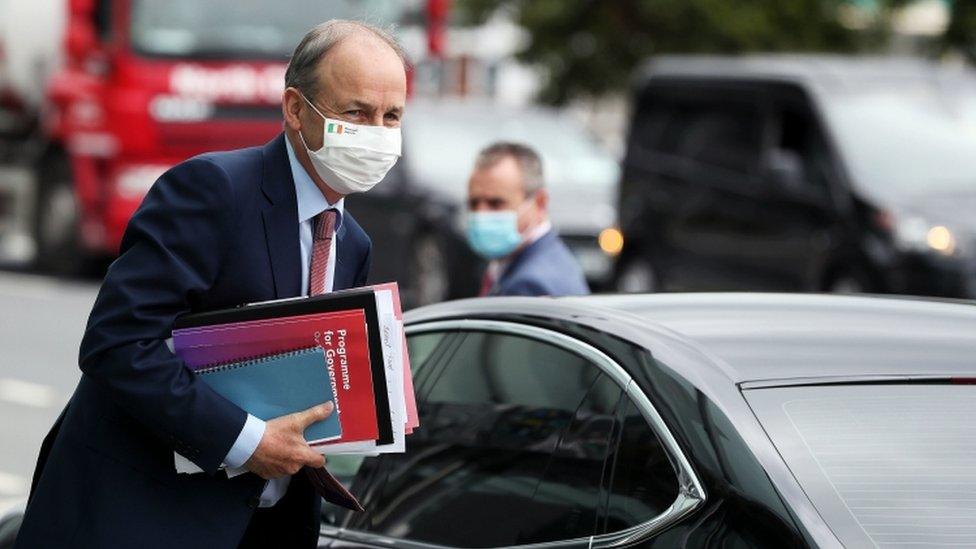Profile: Phil Hogan
- Published
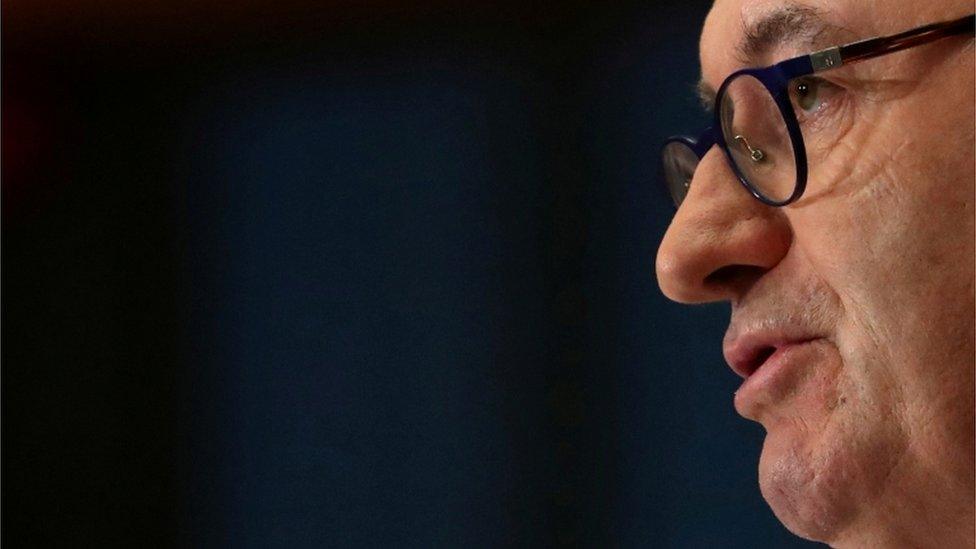
Phil Hogan is a former auctioneer and qualified teacher
Phil Hogan, who has resigned as the EU trade commissioner over what has become known GolfGate, held one of the most influential jobs in the EU.
Mr Hogan had a long, and at times controversial, career in Irish politics before his move to Brussels.
His commission portfolio included a role as point man for the EU's Brexit negotiations with the UK.
Mr Hogan's resignation means Ireland could lose the influential trade post if there is a commission reshuffle.
Costly dinner
The ill-fated Oireachtas (Irish parliament) Golf Society dinner in Clifden, County Galway had already cost two politicians their jobs before the commissioner fell on his sword.
Minister for Agriculture Dara Calleary and Jerry Buttimer, the leas-chathaoirleach (deputy chairman) of the Irish senate both resigned following the revelations surrounding the dinner attended by more than 80 people, which may have been in breach of Covid-19 regulations.
At 6ft 5in (1.9m) tall, "Big Phil" Hogan, a former auctioneer and qualified teacher, towers over most people.
The 60-year-old grew up on his family farm in County Kilkenny.
Mr Hogan holds a Bachelor of Arts degree in Economics and Geography from University College Cork.
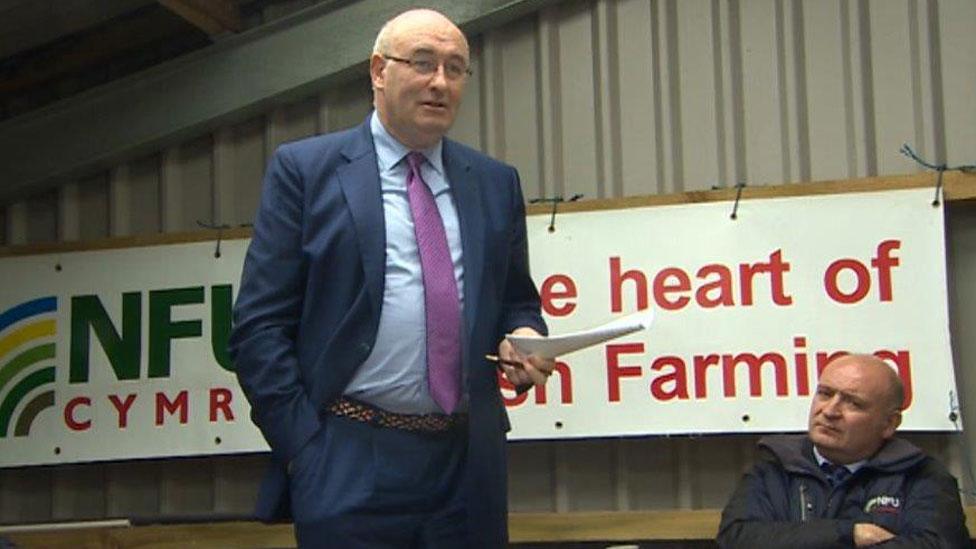
Phil Hogan in Wales campaigning against the UK's exit from the EU during the 2016 referendum campaign
Married with one son, Mr Hogan is a keen golfer and has a home in a gated community at the renowned K Club golf course in County Kildare.
In 2012, the Irish Independent reported that the then environment minister wrote to the ex-Taoiseach (Irish PM) John Bruton's former administrator, Anne O'Connell, to apologise for a crude sexual "insult" delivered at a parliamentary golf outing.
A keen hurler in his younger days, he played for his local GAA club in Tullaroan.
But his hurling career ended at the age of 21 when he reached up to catch a ball and clashed with an opponent.
The Irish Examiner reported him as saying, external the opponent "decided I needed a sixth knuckle", and severely injured Mr Hogan's left hand.

Phil Hogan's Political Career
1983 - Elected to Kilkenny County Council
1985 - Chairman of Kilkenny County Council
1987 - Member of the Irish Senate
1989 - Elected TD (MP) for the Carlow-Kilkenny constituency
1994 - Minister of state at the Department of Finance
2011 - Minister for the Environment, Community and Local Government
2014 - European Commissioner for Agriculture and Rural Development
2019 - European Commissioner for Trade

He was elected to the Dáil (Irish parliament) in 1989 as a representative of the Fine Gael party.
Serving as a minister in the environment, community and local government departments, he is remembered for his role in the heavy lifting of unpopular legislation.
These included a local property tax and the introduction of water charges, which were later abandoned.
Reader of tea leaves?
His skill as a shrewd political operator was evident when a group of senior Fine Gael TDs (MPs) attended a 2010 meeting in an attempt to overthrow party leader Enda Kenny.
"Before they could speak, Kenny fired them all and suspended the meeting. Hogan was credited with this tactic," the Irish Times reported.
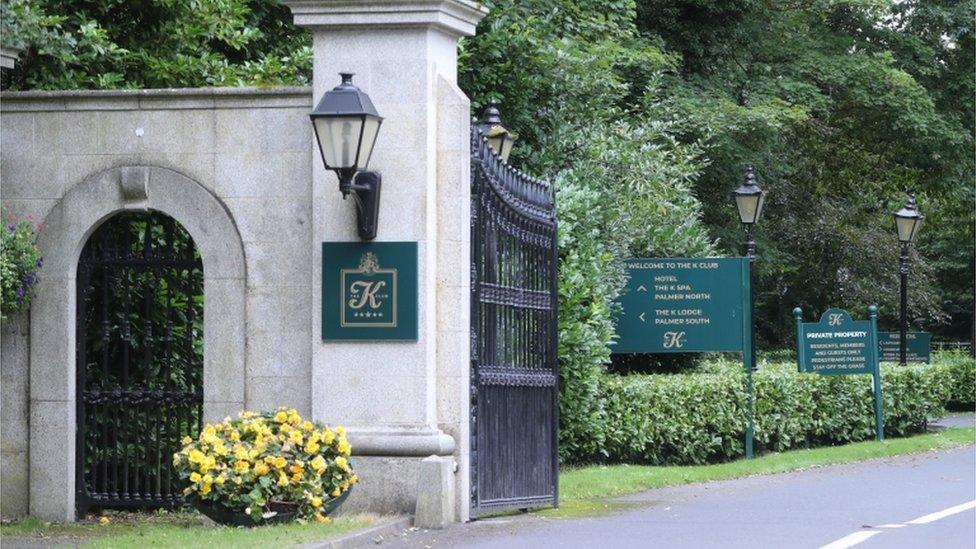
Phil Hogan has a home at the prestigious K Club golf course
When Phil Hogan was appointed to the post of European Commissioner for Agriculture and Rural Development in 2014, some detected an awareness that his unpopularity was about to catch up with him.
"Phil is the face of water and house taxes in Kilkenny," reported national broadcaster RTÉ, quoting a politician who had known him for decades.
"He's read the tea leaves and knows it's better for him to go to Europe now."
When appointed trade commissioner, Mr Hogan said he hoped the UK would strike a deal with the EU, and looked forward to meeting British Prime Minister Boris Johnson.
'Ground hurling'
He had previously been vocally derisive of Mr Johnson and his approach to Brexit.
The commissioner also issued a statement of intent over what he called US President Donald Trump's "clear preference for trade wars rather than trade agreements", promising to engage in a bit of "ground hurling".
As details of the GolfGate dinner emerged, Mr Hogan apologised "fully and unreservedly" for attending the event.
Pressure mounted for him to consider his position, and the commissioner presented 20 pages of documents to the President of the European Commission Ursula von der Leyen in his defence.
In his statement, Mr Hogan said he had adhered to the government's Covid-19 guidelines at all times while he had been in Ireland.
However, the Irish government disagreed, saying he had "undermined public confidence" for failing to comply with quarantine rules when he arrived from Brussels, and then attending the County Galway dinner.
On Wednesday 26 August, having been in the spotlight since 19 August, he resigned his post.
- Published26 August 2020
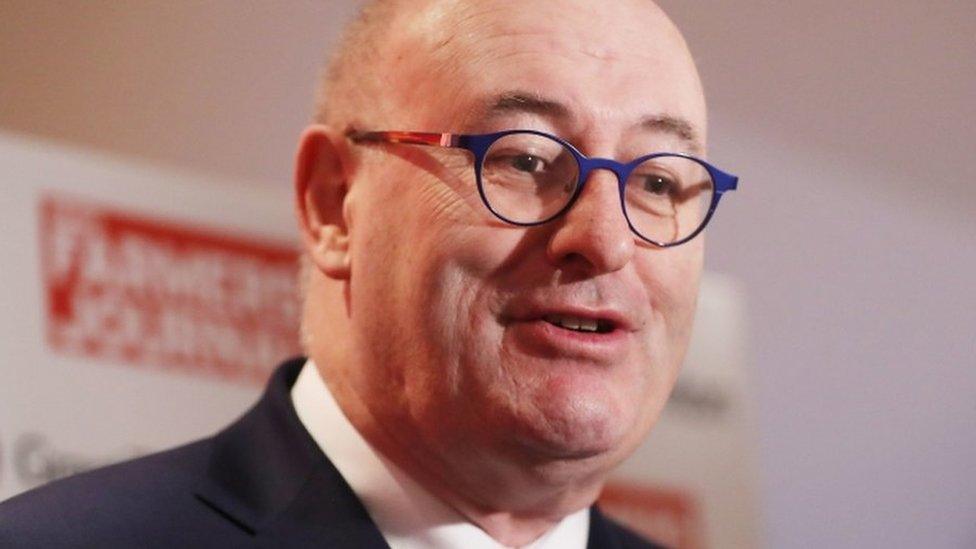
- Published26 August 2020
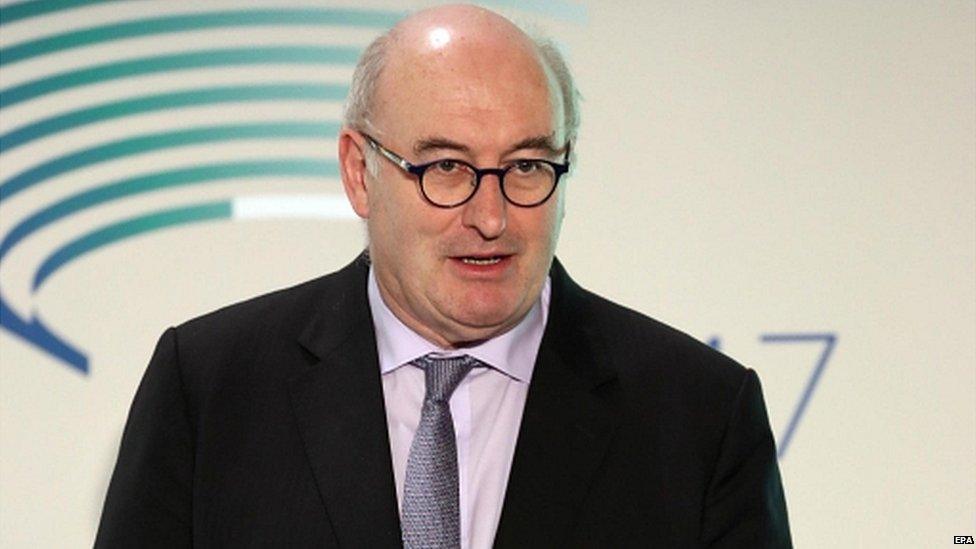
- Published23 August 2020

- Published26 August 2020
